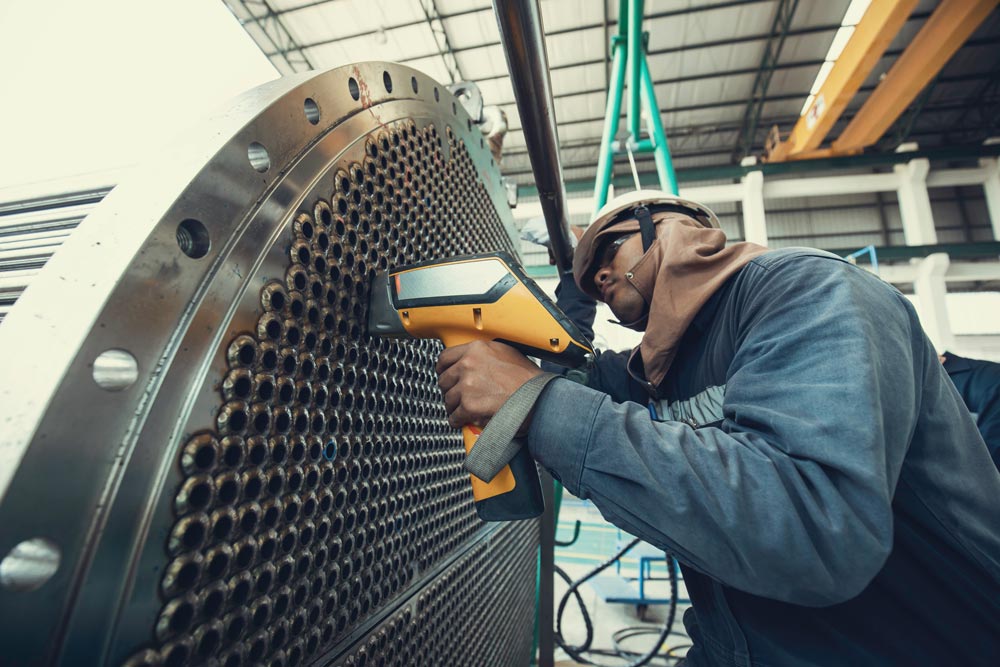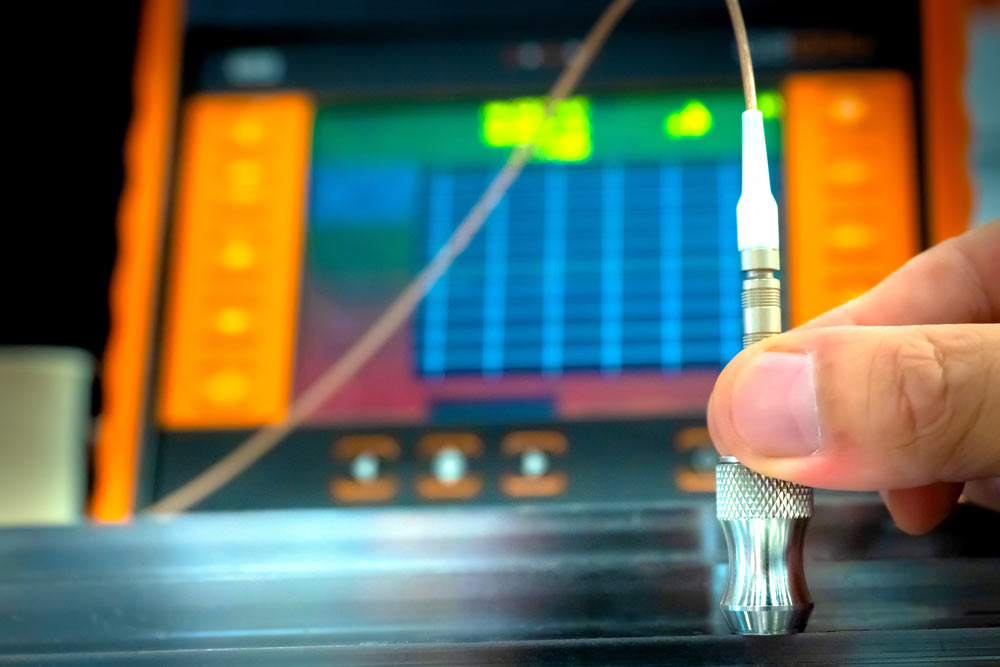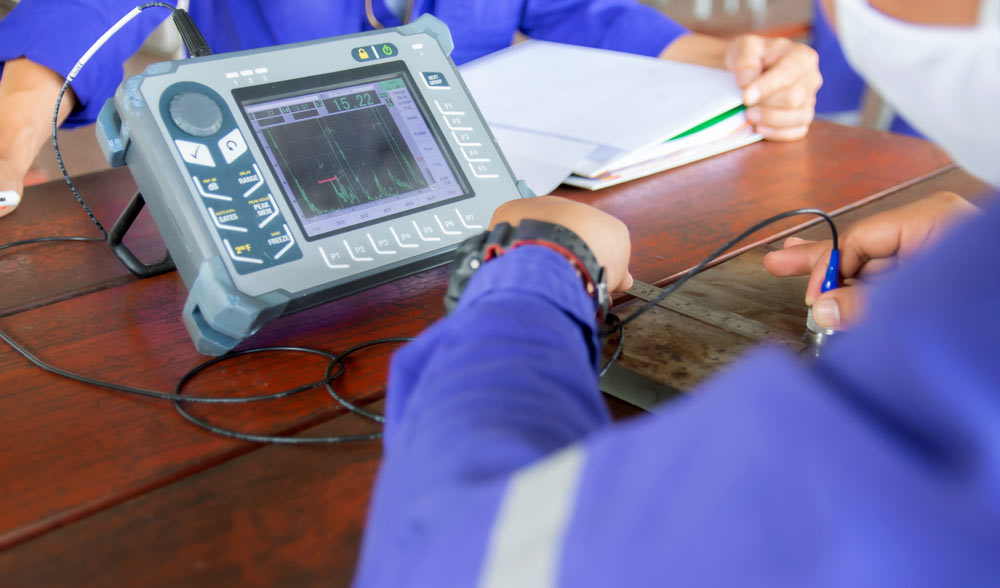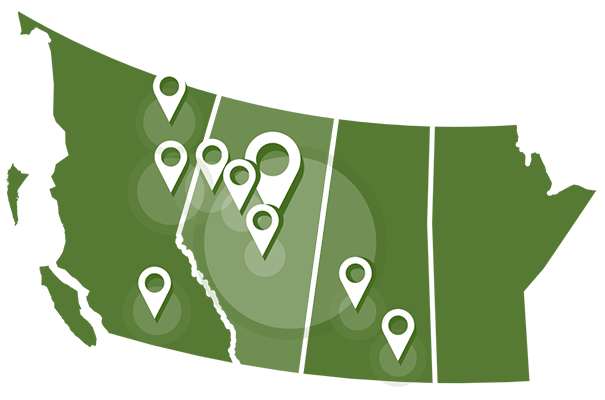NDT Careers 2024: Why Now is the Best Time to Start a Career in NDT
NDT careers are exciting and both personally and financially rewarding. This makes NDT jobs extremely desirable. Whether you’re looking for a reliable career path or want to upgrade your career, NDT (non-destructive testing) offers many great opportunities. This includes numerous options for advancement and professional growth. Best of all, NDT careers in 2024 are in high demand and readily available. In fact, 2024 is the perfect time to get started in non-destructive testing!
Here’s what you can expect from a career in NDT and why now is the best time to get involved.
What does an NDT technician do?
How much do NDT technicians make in Canada?
Is NDT a good career choice?
Why now is the time to start an NDT career
How do I start a career in NDT?
What does an NDT technician do?
An NDT technician inspects various materials and structures for defects, flaws and damage. The main goal of an NDT technician is to ensure that equipment, structures and materials are safe and reliable.
There are many different non-destructive testing jobs available. Therefore, what an NDT technician does day-to-day, and the industry they work in, will vary depending on their expertise and level of training.
For instance, each type of NDT technician can be certified at three levels – Level 1, Level 2, and Level 3. An NDT technician can also be certified in more than one type of NDT. This means that a single technician can employ various methods of non-destructive testing. Technicians who are certified in multiple testing methods at higher levels (Level 3 being the highest) can provide more complex NDT services.
NDT careers are available in a wide variety of industries. Here’s where your career in NDT could take you.
Industries NDT Technicians Work In
Organizations in many different sectors require NDT technicians. Some of the most common industries in Canada that utilize non-destructive testing include:
- Mining
- Industrial construction
- Aerospace
- Automotive
- Rail transportation
- Defence
- Heavy equipment manufacturing
- Power generation
- Pipeline
- Oil and gas, and more
In Western Canada, pipeline and oil and gas are the biggest sectors that require NDT. This is one of the reasons that NDT careers in 2024 are so desirable (more on this below).
Think you could excel in an NDT career? Let’s take a look at the next big question – how much do NDT technicians make?
How much do NDT technicians make in Canada?
If you want to become an NDT technician, you’ll be happy to know that NDT careers pay well. In Canada, the average NDT technician makes approximately $60,000 to $200,000+ based on field experience, technical certification and desired work scope.
If you’re just starting out, you can expect to make around $50,000+ per year. As you gain more experience, certifications in additional testing methods and higher level designations, you’ll make even more. In fact, the more testing methods an NDT technician is certified to employ, and the higher their certification level (i.e. Level 1, Level 2, Level 3), the more they will make. A Level 3 NDT technician who is certified to conduct various types of non-destructive testing will make the most.
Now, based on everything we’ve discussed, you’re probably wondering – is NDT a good career choice? Here’s what we think.
Is NDT a good career choice?
NDT is a great career choice. It offers high pay, flexibility, the option to work in various industries and many opportunities for career growth. That being said, certain people are more suited to NDT careers than others.
Here are some important strengths and skills you’ll need to succeed.
Skills and Strengths Required in NDT Careers
Individuals who possess these qualities and most likely to excel in NDT careers.
- Mind for mathematics and science
- Ability to understand and work with technology
- Strong problem-solving skills
- Attention to detail
- Strong reasoning skills
- Ability to think quickly
- Strong written and verbal communication
- Good vision (especially colour vision)
- Additional specialized skills, like rock climbing, are a bonus
If an NDT career seems suitable for you, you’ll be happy to know that 2024 is a great time to start! Here’s why.
Why NDT Careers Are In-Demand in 2024
The demand and price for oil and gas have skyrocketed in 2024. As a result of increased productivity in the oil and gas industry, the need for NDT technicians has grown. Therefore, more jobs and more opportunities are available in the field. This makes 2024 the perfect time to get started with a career in NDT.
Want to become an NDT technician? Here’s how you can get started.
How do I start a career in NDT?
There are several steps you’ll need to take to start an NDT career in Canada. Here’s what you’ll need:
- High school diploma or GED equivalent
- College education in Material Science or Welding (this is not required, but will help reduce the time it takes to earn your NDT certification)
- NDT certification from a Recognized Training Organization (RTO) – this step includes extensive training and work experience. After completing your practical work experience, you must also pass the NRCan practical exam.
NRCan (Natural Resources Canada) is in charge of the Non-Destructive Testing Certification Body (NDTCB). Therefore, NRCan is responsible for the national program that certifies all NDT personnel in Canada.
NRCan and the NDTCB require NDT technicians to receive separate training and certification for each NDT method they wish to employ. Therefore, you will need to complete training and testing in all the NDT methods you wish to use in the field.
Keep in mind, once you are certified, you are also responsible for keeping your certification up-to-date. This means staying up to date with changes in technology and code and renewing your certification every 5 years.
NDT Careers at Buffalo Inspection Services
Ready to get started with an NDT career?
Buffalo is one of the top non-destructive testing companies in Western Canada. To provide reliable NDT services, we use the most advanced technology and equipment in the industry.
At Buffalo, we believe that our employees are our number one asset. Therefore, we focus heavily on safety and ongoing training. As a non-union NDT company, Buffalo also pays competitive wages – without the union fees.
We’re here to make your goals in the NDT field, whatever they may be, a reality. We’ll help you find a position that best suits your needs and support you in turning it into a life-long NDT career. Our top-notch training programs (BIS-EDO training), extensive safety programs, and our strong record with industry regulators make us a top choice for anyone considering an NDT career.
Get started with an NDT job at Buffalo today!





